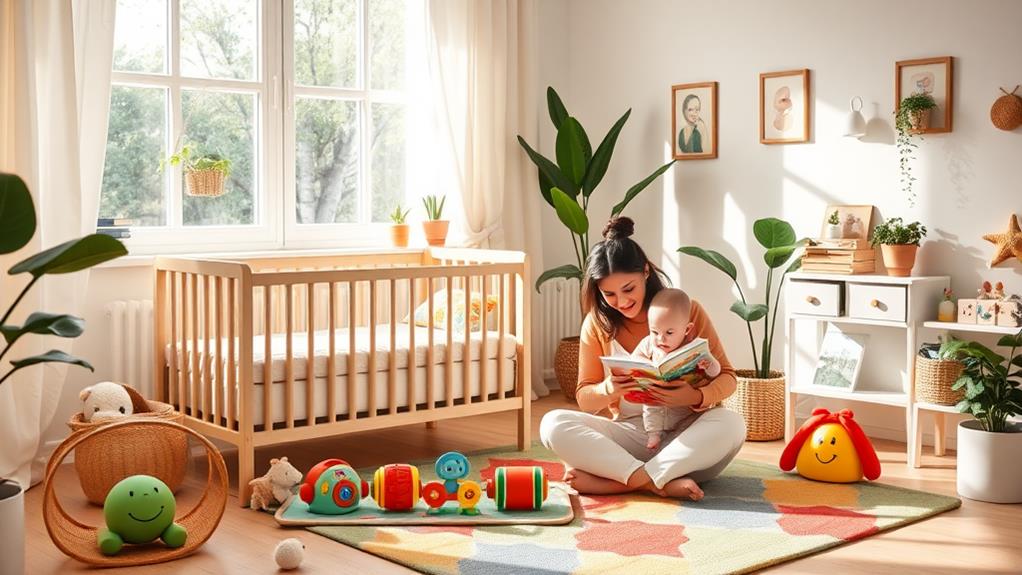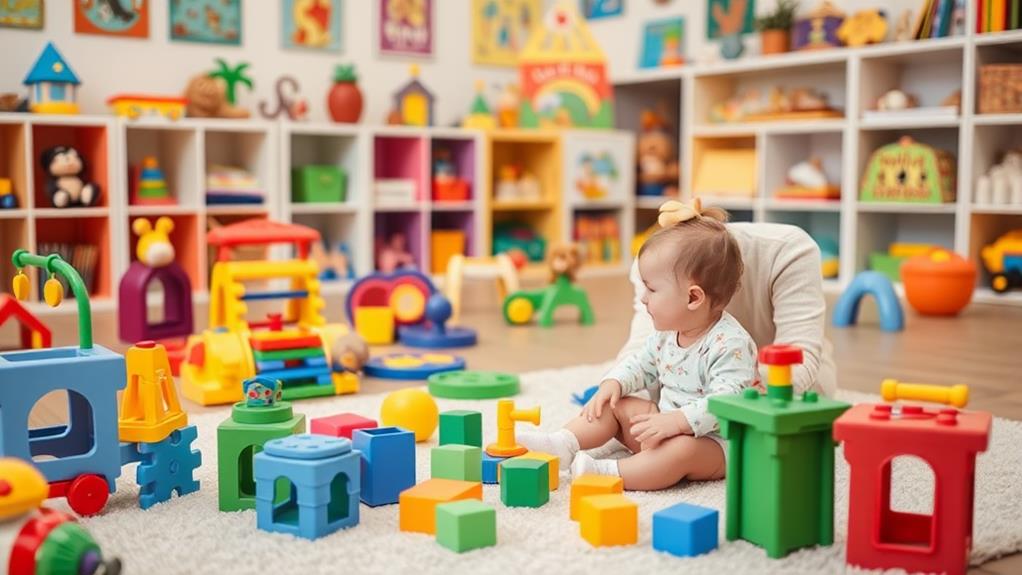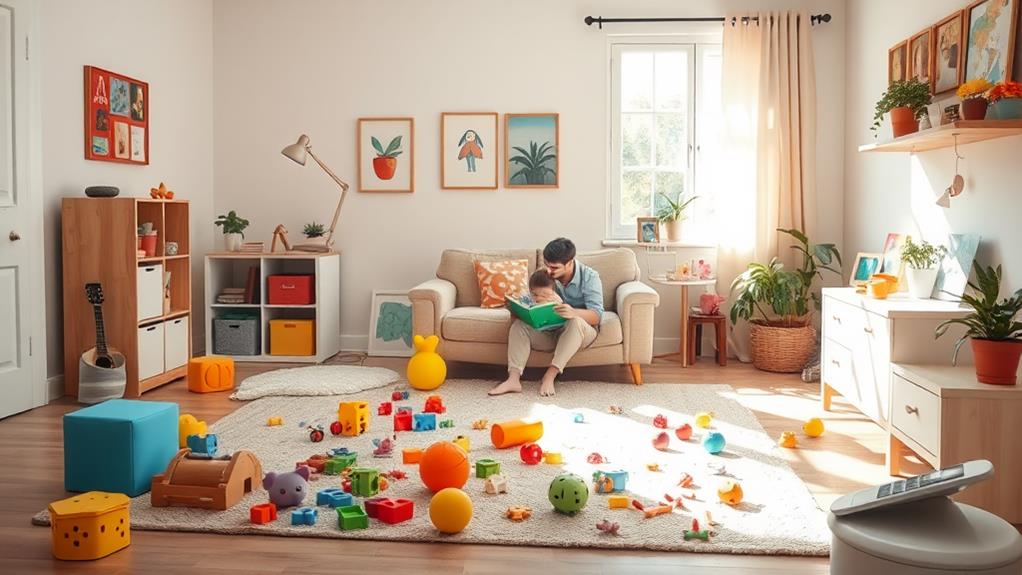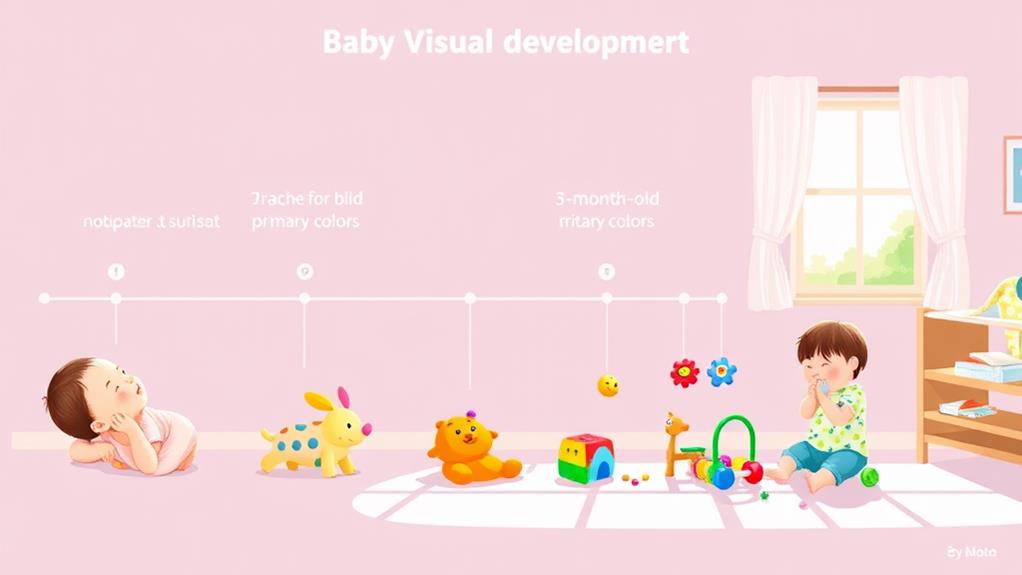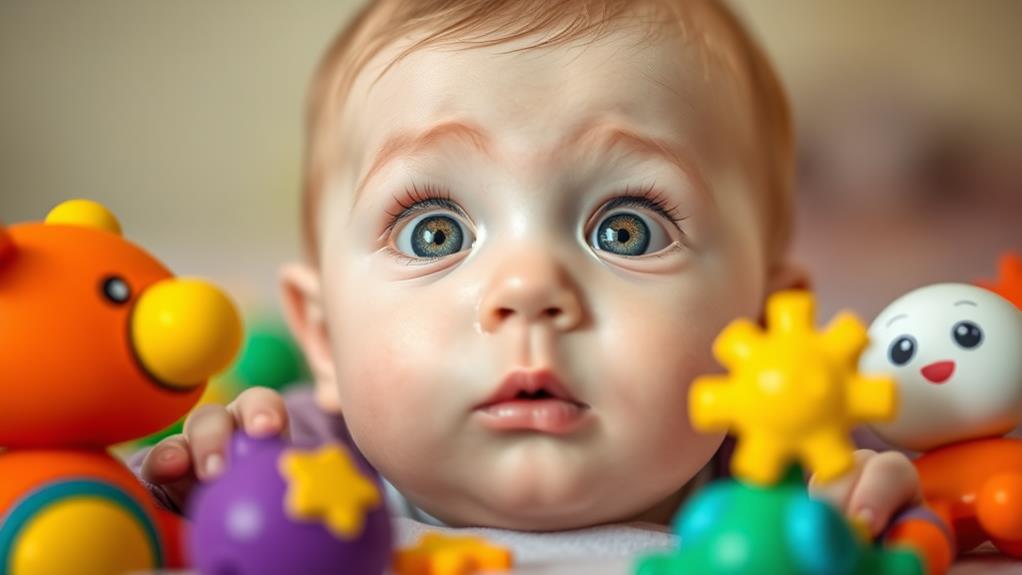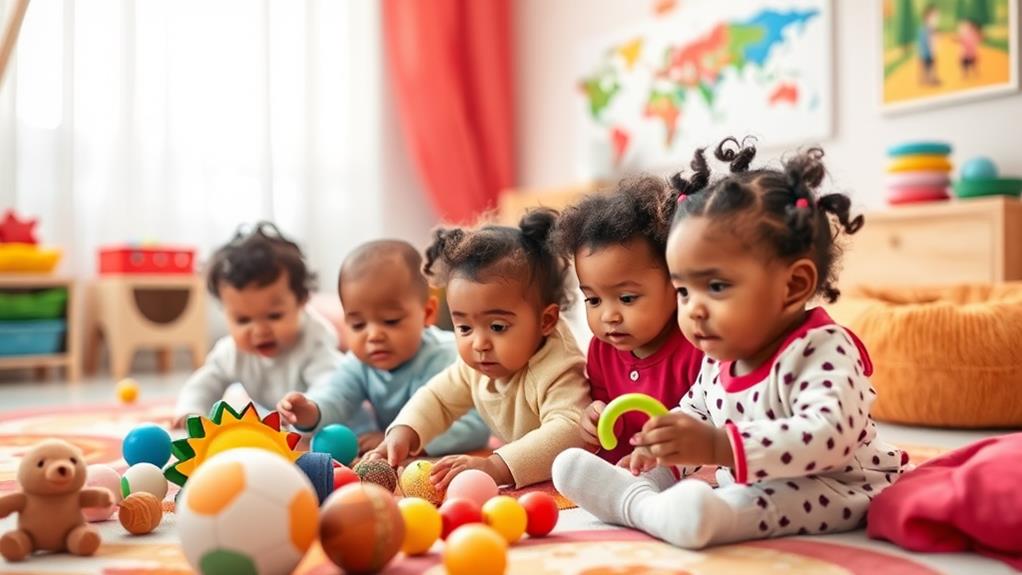Have you ever wondered how much your unborn baby can actually hear? Research shows that by around 25 weeks, your little one starts picking up on sounds, and your voice stands out amidst the muffled noises of the womb. Engaging in conversations or even singing can not only create a sense of familiarity but also promote their emotional and cognitive development. So, what exactly should you say to forge this important bond? The answer might surprise you and could have lasting effects on your baby's growth.
The Science of Fetal Hearing

Have you ever wondered how early your baby can hear? It's pretty amazing! Research shows that a fetus can start hearing sounds around the 25th week of pregnancy. That's right—before your little one even makes their grand entrance, they're already tuned in to the world!
At this stage, the sounds your baby hears are muffled, like listening to music through a closed door. They can pick up your voice, your heartbeat, and even the rhythm of your movements. Isn't that sweet? Your voice becomes a comforting sound, something they'll recognize when they finally arrive.
Interestingly, they can also hear external noises, like music and conversations, but it's all a bit of a jumble. The amniotic fluid acts like a sound barrier, so everything's a little "underwater."
You might be thinking, "What can I do with this info?" Well, it's a great opportunity to bond! Talking or singing to your baby can help them feel connected to you.
Plus, it might just make you feel more excited about their arrival. So go ahead—chat away! Your baby is listening!
Development of Hearing Abilities
As your baby's hearing develops, they'll begin to distinguish between different sounds and rhythms. By around 25 weeks, they can hear your voice, music, and even the sounds of your heartbeat. Isn't that amazing? They're like little sound detectives, tuning in to the world around them!
At this stage, your baby's brain is busy processing these sounds. They might respond to your voice with movement, so if you talk or sing, don't be surprised if you feel a little kick or a wiggle. It's their way of saying, "Hey, I hear you!"
You might wonder why this matters. Well, the more your baby hears familiar sounds, the more comforted they'll feel once they're born. It's like they're getting a sneak peek into the world they'll soon join.
Sounds in the Womb

Many sounds fill the womb, creating a unique auditory environment for your baby. From the gentle whoosh of blood flowing through your veins to the rhythmic thumping of your heartbeat, your little one hears a lot more than you might think. They can even pick up on external noises, like music or laughter, though these sounds are muffled and distorted by the layers of tissue and fluid.
Interestingly, your baby can hear voices, too! They might recognize your voice and your partner's voice, which could be comforting for them. It's like they're already getting to know you.
Plus, they can hear your stomach growling and the sounds of your digestive system at work. Who knew the womb was such a busy concert hall?
While it might seem strange to think about your baby listening to all this, it shows just how connected you are, even before they're born. So, when you chat or sing, remember that your baby is soaking it all in, even if it sounds more like a soft lullaby to them.
Embrace these moments; you're creating a special bond that starts long before the world outside!
Benefits of Talking to Your Baby
Talking to your baby can foster an incredible bond that lays the foundation for their emotional development. When you chat with your little one, you're not just filling the silence; you're creating a warm and loving environment. Your voice becomes familiar and comforting, which helps your baby feel secure, even before they're born.
Plus, talking to your baby can stimulate their brain development. Research shows that babies recognize their parents' voices while still in the womb. So, the more you talk, the more they're learning about language and sounds. It's like giving them a head start in understanding the world!
Another benefit? It's a great way for you to express your thoughts and feelings. Sharing your hopes, dreams, and even silly jokes can lighten your mood and help you connect with your baby. You might even laugh at yourself sometimes!
And let's not forget the joy of sharing this experience with your partner or family members. They can join in too, making it a fun activity.
What to Say to Your Unborn Baby

Sharing your thoughts and feelings with your unborn baby can be a delightful experience. You might wonder what to say during these precious moments. Start by telling your baby about your day. Describe the little things, like what you'd for lunch or a funny encounter you had. Babies love to hear your voice, so let them feel how happy you are.
You can also share your dreams for the future. Talk about the adventures you can't wait to go on together, like trips to the park or family gatherings. Don't forget to express your love! Saying "I love you" is powerful, even before they arrive.
Feel free to sing or read aloud, too! Whether it's a favorite story or a silly song, your baby will enjoy the rhythm of your voice.
And don't worry about being perfect; they won't judge your singing skills!
Reactions to External Sounds
Reactions to external sounds can provide fascinating insights into your unborn baby's development. Did you know that by around 25 weeks of pregnancy, your baby can actually hear sounds from outside the womb? It's true! They might respond to your voice, music, or even the sound of a dog barking. Imagine your little one doing a little dance to your favorite tunes!
When you talk or sing, your baby might react by moving or kicking. This is their way of saying, "Hey, I can hear you!" Some studies suggest that babies can even recognize familiar voices, particularly yours, which is pretty amazing. So, when you chat with your bump, you're not just talking to yourself; you're connecting with your baby in a special way.
Even though they're surrounded by amniotic fluid and a lot of muffled sounds, your baby's ears are developing, and they're soaking it all in. It's like they're listening to their very own radio station.
Cultural Practices Surrounding Talking

Around the world, different cultures embrace unique practices when it comes to communicating with unborn babies. In some cultures, parents sing lullabies or play music, believing that the rhythm and melody connect them to their little one. Imagine your baby grooving to your favorite tunes before even arriving!
In others, storytelling is a cherished tradition. Expecting parents share stories, not just to entertain, but to pass down family history. It's like giving your baby a sneak peek into their heritage!
In many Indigenous cultures, rituals include talking to the baby, inviting them to be part of the family even before birth. In Japan, some believe that soft, soothing words help create a calming environment for the baby, while in parts of Africa, rhythmic drumming is used to resonate with the baby's heartbeat.
It's fascinating how these practices reflect love and connection across cultures. No matter the method, communicating with your unborn baby fosters a bond.
Expert Opinions on Fetal Communication
Experts in prenatal development emphasize the importance of communicating with your unborn baby. They believe it helps create a bond between you and your little one before they even arrive. When you talk, sing, or even read aloud, the baby can start to recognize your voice. Isn't that amazing?
Researchers say that around 25 weeks, your baby can hear sounds from outside the womb. This means your sweet voice, music, and even the family dog barking can be heard! It's like your baby's own personal radio station.
Some experts suggest that talking to your unborn baby can help with language development later on. It's like planting seeds for their future communication skills.
Plus, it can help you feel connected and reduce stress.


